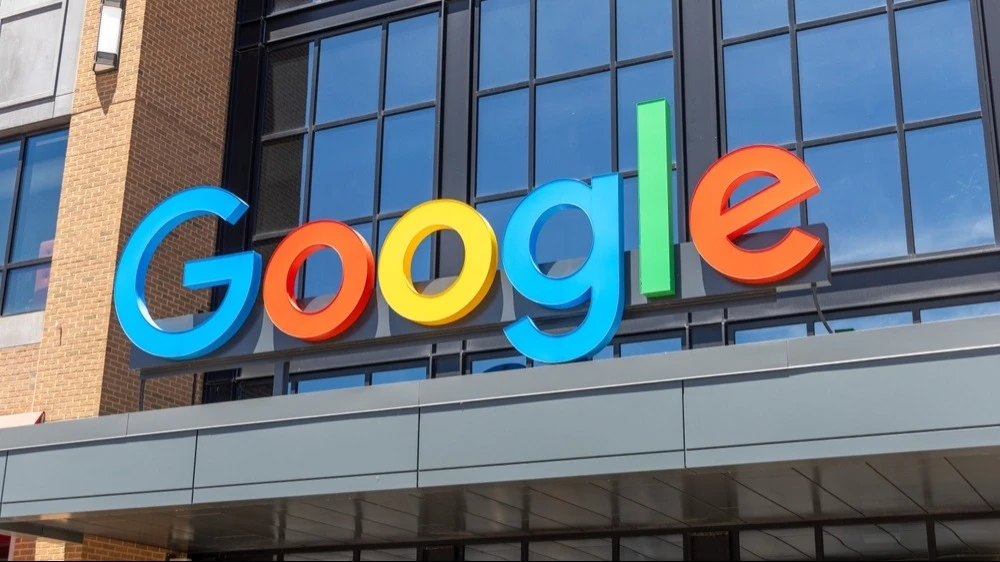Highlights for this morning: Google prepares Anthropic deal, Samsung and Meta expand horizons

Google is in talks with Anthropic to provide tens of billions of dollars worth of computing power, including access to Google's own TPU chips, to accelerate the development of its Claude line of language models. Samsung and Google showed off the Galaxy XR headset and Android XR operating system, laying the groundwork for future AI glasses with support for the Gemini assistant. About these and other topics - in our review of the key events for the morning of October 22.
Google prepares multi-billion dollar deal with Anthropic to expand AI capabilities
AI startup Anthropic is negotiating a tens of billions of dollars agreement with Google that provides access to additional cloud computing resources, Bloomberg reports. The deal, the terms of which have not yet been finalized, involves the use of Google Cloud and Google's proprietary TPU chips designed to accelerate machine learning.
Google is already an investor and cloud service provider of Anthropic: it has invested about $3 billion in the startup. In addition, Amazon has invested about $8 billion in Anthropic; it too is giving Anthropic access to its computing power and chips.
Founded in 2021 by exits of OpenAI (creator of ChatGPT), Anthropic is known for its Claude line of language models, a competitor to ChatGPT. The company closed a $13 billion investment round in September, nearly tripling its valuation to $183 billion, and is in new talks with Abu Dhabi-based MGX.
Samsung and Google are going up against Meta with a new XR helmet and Android XR platform
Samsung and Google have unveiled Android XR, an operating system developed with Qualcomm for mixed and augmented reality devices ranging from XR helmets to smart glasses with the Gemini AI assistant, Yahoo Finance reports. The first device on the new platform was the Galaxy XR, a $1799 mixed reality headset comparable to Apple's Vision Pro and Meta Quest 3.
According to Samsung COO Won-Joon Choi, bringing the three companies together was not easy, but it is the combination of the XR and Gemini's multimodal AI that creates a "unique synergy." With Gemini, users will be able to interact with the world around them through the headset, such as recognizing objects, searching for locations on Google Maps and getting contextual information.
The Galaxy XR will be the basis for future Samsung and Google devices: first wired, then wireless, and eventually full-fledged AI glasses with a built-in screen and navigation.
Meta and Blue Owl create $27-billion JV for Hyperion's largest data center in Louisiana
Meta has entered into an agreement with investment firm Blue Owl Capital to form a $27 billion joint venture to finance and build the giant Hyperion data center in Louisiana, CNBC writes. This is the largest private credit deal on Wall Street, MarketWatch specifies.
Blue Owl will receive an 80% stake and Meta a 20% stake, but the latter will retain control over the construction and management of the facility. As part of the deal, Blue Owl contributed $7 bln in cash, while Meta received a lump sum payment of $3 bln.
The project, located in Richland County, will be Meta's largest data center and is expected to be completed by 2030. It is estimated that it will use twice as much electricity as all of New Orleans on a peak day. The company said the partnership will give it the "speed and flexibility" it needs to realize its long-term AI goals.
The agreement fits into the tech giants' race for computing power: OpenAI, Oracle and SoftBank previously formed the $500 billion Stargate consortium, and Google recently announced it would build the largest AI center outside the U.S. in India at a cost of $15 billion.
Netflix fell short of forecasts but promises growth amid record content and ads
Netflix reported quarterly revenue of $11.51 billion and earnings of $5.87 per share, falling short of analysts' expectations and its own forecasts, Yahoo Finance reports. The company's stock fell more than 6% in after-hours trading. Operating margin was 28% versus expectations of 31.5% due to a one-time charge related to a tax dispute in Brazil.
Still, the streaming giant is forecasting growth, with Netflix expecting $11.96 billion in revenue and $5.45 earnings per share in Q4, and $45.1 billion in revenue and a 29% margin by the end of 2025. The company notes "healthy engagement levels" thanks to strong content - in particular, record views of the Canelo vs. Crawford fight and the KPop cartoon Demon Hunters, which became the most popular movie in the platform's history.
The advertising division is seeing its best results in the service's history. Netflix reported double-digit growth in ad sales and integration with Amazon's DSP, expanding opportunities for brands. The company said it is confident about the future of its advertising business, expecting to double ad revenue in 2025.
What's in the markets
- The broad Japanese Topix index was growing by 0.72%. Benchmark Nikkei 225 - by 0.14%.
- In South Korea, the Kospi index was up 0.97%, while the Kosdaq was down 0.3%.
- Australia's S&P/ASX 200 was falling 0.71 percent.
- Futures on the Nasdaq 100, S&P 500 and Dow Jones Industrial Average were little changed.
This article was AI-translated and verified by a human editor
